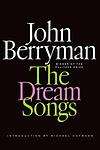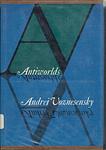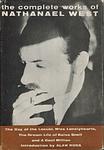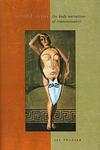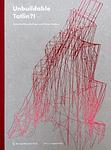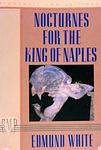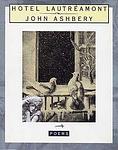The Greatest Russian, American "Modernist, Fiction" Books Since 1950
Click to learn how this list is calculated.
This list represents a comprehensive and trusted collection of the greatest books. Developed through a specialized algorithm, it brings together 300 'best of' book lists to form a definitive guide to the world's most acclaimed books. For those interested in how these books are chosen, additional details can be found on the rankings page.
Genres
Modernist literature is a category of books that emerged in the early 20th century, characterized by a break from traditional literary forms and a focus on individual experience and perception. Modernist writers experimented with language, form, and structure, often using stream-of-consciousness narration and fragmented storytelling to convey the complexity and ambiguity of modern life. Themes of alienation, disillusionment, and the search for meaning are common in modernist literature, which reflects the cultural and social upheavals of the time. Overall, modernist literature is a challenging and thought-provoking genre that continues to influence contemporary literature and culture.
Countries
Date Range
Reading Statistics
Click the button below to see how many of these books you've read!
Download
If you're interested in downloading this list as a CSV file for use in a spreadsheet application, you can easily do so by clicking the button below. Please note that to ensure a manageable file size and faster download, the CSV will include details for only the first 500 books.
Download-
1. Rabbit, Run by John Updike
The novel follows the life of a 26-year-old former high school basketball star, who is dissatisfied with his current life. He impulsively leaves his wife and son and embarks on a journey in the hopes of finding a more meaningful existence. His decisions, however, lead to a series of tragic events that impact the lives of those around him. This mid-20th-century novel explores themes of freedom, responsibility, and the tragic consequences of impulsive decisions.
-
2. Gravity's Rainbow by Thomas Pynchon
Set during the end of World War II, the novel follows Tyrone Slothrop, a lieutenant in the U.S. Army, as he tries to uncover the truth behind a mysterious device, the "Schwarzgerät", that the Germans are using in their V-2 rockets. The narrative is complex and multi-layered, filled with a vast array of characters and subplots, all connected by various themes such as paranoia, technology, and the destructive nature of war. The book is known for its encyclopedic nature and its challenging, postmodernist style.
-
3. Wise Blood by Flannery O'Connor
"Wise Blood" is a novel about a young man named Hazel Motes, who returns home to Tennessee after serving in World War II and finds his religious beliefs shaken. He becomes a street preacher, founding the Church Without Christ to preach his message of faithlessness. The book explores themes of redemption, faith, and the struggle between belief and atheism as Hazel interacts with a variety of eccentric characters and faces his own internal battles.
-
4. V by Thomas Pynchon
"V" is a complex novel that intertwines two parallel narratives. One follows Benny Profane, a discharged U.S. Navy sailor involved in a group of bohemian artists and hooligans called the Whole Sick Crew, while the other narrative is a series of historical accounts researched by Herbert Stencil, who is on a quest to uncover the identity of an entity known only as V. The narrative oscillates between various global locations and time periods, including Egypt in 1898, Southwest Africa in 1922, and Malta in 1919, among others. The book explores themes of entropy, human connection, and the nature of identity.
-
5. Sleepless Nights by Elizabeth Hardwick
"Sleepless Nights" is a novel that weaves together memories, reflections, and fictionalized episodes to paint a portrait of a woman's life. The narrative is fragmented and non-linear, reflecting the protagonist's introspective journey through her past relationships, experiences, and observations. Set against the backdrop of various American and European backdrops, the book delves into themes of love, loss, identity, and the complexities of the human condition. The protagonist's musings are interlaced with vivid character sketches of the people who have drifted in and out of her life, creating a tapestry of poignant and evocative vignettes that capture the essence of her restless, contemplative existence.
-
6. Happy Moscow by Andrey Platonov
"Happy Moscow" is a satirical novel set in the Soviet Union during the height of Stalinist rule, following the life of a young woman, Moscow Chestnova, who is named after the capital city. Despite the harsh realities of life under an authoritarian regime, she maintains a positive and optimistic outlook, symbolizing the Soviet Union's propaganda that promoted an image of a happy and prosperous society. The novel, through its characters and their experiences, explores the paradoxes and contradictions of the Soviet society, challenging the official narrative of happiness and prosperity.
-
7. The Dream Songs by John Berryman
The book is a collection of 385 poems that form a deep and complex portrait of the protagonist's troubled psyche, as he grapples with a myriad of themes including loss, despair, race, and the fragmented nature of the self. The narrative is characterized by its innovative structure, shifting perspectives, and a unique blend of high diction and colloquial language. The protagonist's journey is marked by moments of intense emotional turmoil and self-reflection, often conveyed through a dialogue between different aspects of his personality, as he seeks meaning and redemption in a chaotic world.
-
8. Omensetter's Luck by William H. Gass
Set in a small Ohio town in the 1890s, the novel revolves around the enigmatic character Brackett Omensetter, a man whose mere presence seems to affect those around him in profound and inexplicable ways. The story is narrated from the perspectives of three different characters: the town's eccentric and paranoid physician, a reverend tormented by his lack of faith, and a local man who becomes obsessed with Omensetter. The narrative explores themes of religion, morality, and the nature of luck and fate.
-
9. A Fable by William Faulkner
This novel is a World War I allegory where a Christ-like figure emerges within a French regiment, sparking a mutiny. The figure, a corporal, persuades his squadron to not attack in the bloody conflict, leading to their court-martial and execution. The narrative explores themes of war, morality, and the human spirit, with the corporal's actions causing a ripple effect, impacting the lives of soldiers, officers, and even a Jesuit priest.
-
10. A Poem Without A Hero by Anna Akhmatova
The book is a profound reflection on the nature of memory, history, and the enduring impact of war. Through a series of interconnected poems, the work weaves together personal and collective experiences, focusing on the tumultuous events of the Russian Revolution and the subsequent Stalinist era. The poet grapples with the themes of loss, betrayal, and the search for redemption, while also paying homage to the artists and thinkers who suffered under repressive regimes. Rich in allusions and steeped in a complex interplay of voices and time periods, the narrative serves as a poignant meditation on the role of the poet and the power of poetry to bear witness to the tragedies of the past.
-
11. Antiworlds by Andrey Voznesensky
"Antiworlds" is a collection of poetry that provides a glimpse into the Soviet Union during the Cold War era. The poems are characterized by their avant-garde style, exploring themes of love, politics, and the human condition. The book includes the author's reflections on his travels around the world, his experiences with other cultures, and his perspective on the political climate of his time. The poems are both personal and universal, offering a unique perspective on the world during a period of intense political and social change.
-
12. The Complete Works of Nathanael West by Nathanael West
This collection features the complete works of a renowned American author, known for his dark humor and social criticism. The book includes four novels and various other writings that depict the disillusionment and despair of the Great Depression era. His stories often revolve around aspiring artists and Hollywood dreamers, exploring themes of fame, illusion, and the American Dream. The author's unique style blends satire and tragedy, creating a distinct voice in 20th-century American literature.
-
13. Second Skin by John Hawkes
In "Second Skin," readers are plunged into the chaotic life of Skipper, a retired naval officer and teacher, as he navigates a series of tragic and surreal experiences on a remote island and elsewhere. The novel weaves through time, exploring Skipper's troubled relationships with his daughter and his deceased wife, as well as his attempts to find redemption and meaning in a world that seems to be disintegrating around him. The narrative is marked by its dark humor, complex symbolism, and an exploration of themes such as identity, loss, and the human capacity for self-deception and resilience.
-
14. Forgetting Elena by Edmund White
The novel presents a surreal and allegorical tale set on an enigmatic island, where the amnesiac protagonist struggles to navigate a society governed by intricate and arbitrary social codes. As he attempts to reconstruct his identity and understand his past, he encounters a cast of eccentric characters who embody the peculiar customs and rituals of the island's culture. The narrative, rich with metaphor and satire, explores themes of memory, identity, and the search for self amidst the bewildering constraints of a highly stylized community.
-
15. Tatlin! by Guy Davenport
"Tatlin!" is a collection of imaginative short stories that blend historical fact with fiction, exploring the lives and works of various artists and intellectuals. The narratives are rich with allusions and delve into the creative processes of these figures, including the titular Russian avant-garde architect and designer. The book weaves together themes of art, invention, and the complexities of human experience, presenting a tapestry of intertextual vignettes that challenge the boundaries between reality and imagination. Through its lyrical prose and intricate structure, the collection offers a unique meditation on the nature of genius and the eternal quest for artistic innovation and expression.
-
16. Nocturnes For The King Of Naples by Edmund White
The book is a lyrical and introspective novel that explores the themes of love, loss, and desire through the lens of a man reflecting on his past relationship with an older, enigmatic lover. The narrative unfolds in a series of evocative vignettes and musings, blending reality with fantasy, as the protagonist grapples with the enduring impact of this deeply transformative affair. Set against the backdrop of various locations, including Naples, the novel delves into the complexities of memory and the haunting nature of longing, weaving a tapestry of emotion and poetic imagery that captures the essence of romantic yearning and the pain of its inevitable dissolution.
-
17. Flow Chart by John Ashbery
"Flow Chart" is a long, meditative poem that weaves through the complexities of life, consciousness, and creativity. The work is characterized by its free-flowing structure, which mirrors the meandering nature of thought and the interconnectedness of experiences. The poem's speaker reflects on a range of subjects, from the mundane to the profound, exploring memory, time, art, and the intricacies of human relationships. With its blend of humor, melancholy, and philosophical insight, the poem invites readers to contemplate the ebb and flow of life's journey and the patterns that emerge from the chaos of existence.
-
18. Hotel Lautréamont by John Ashbery
"Hotel Lautréamont" is a collection of poetry that weaves together a tapestry of vivid imagery, linguistic playfulness, and intertextual references. The poems are characterized by their elusive meanings and open-ended interpretations, inviting readers to embark on a journey through a landscape of memory, art, and the subconscious. The poet's masterful use of language challenges conventional structures and expectations, creating a work that defies easy categorization and reflects the complexities of human thought and emotion.
-
19. The Field of Vision by Wright Morris
"The Field of Vision" is a novel that focuses on a group of American tourists who travel to Mexico to witness a bullfight. The narrative unfolds through the eyes of one of the tourists, who reflects on his personal life and relationships. The story is not linear but rather a series of flashbacks and introspections, creating a complex and layered narrative. The author explores themes of perception, memory, and the human condition through the protagonist's introspective journey.
Reading Statistics
Click the button below to see how many of these books you've read!
Download
If you're interested in downloading this list as a CSV file for use in a spreadsheet application, you can easily do so by clicking the button below. Please note that to ensure a manageable file size and faster download, the CSV will include details for only the first 500 books.
Download





